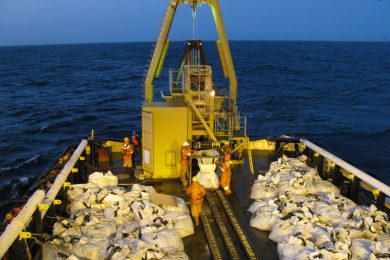
Evolution of the African Peace and Security Architecture should be multifaceted

By Farai Tinashe Munoriarwa.
The African Peace and Security Architecture (APSA) since its formation has focused on conventional conflict within the continent with heavy reliance on regional early warning systems from all regional economic communities.
2020 marked the end of their recent roadmap usheringin a new roadmap namely: ‘Silencing the Guns in Africa by 2020’, which set up to curb the selling of small arms and light weapons in Africa.
Silencing the guns in Africa by 2020 had mixed results, with successes in preliminary peace deals being signed in Central African Republic (2019), South Sudan (2018) and Sudan in 2020. In addition, the frozen border conflicts between Ethiopia and Eritrea ended as a result of a landmark peace accord normalising relations between the two states in over 20 years.
Silencing the guns in Africa by 2020 faced some stumbling blocks with funding, as external partners cut budgets. It is no secret that the African Union is underfunded and relies strongly on external donors and partners. Moreover, the roadmap failed to stem the flow of arms within the continent. Compliance issues amongst AU member states posed another challenge specifically with those manufacturing small arms and light weapons may have not signed or ratified the Arms Trade Treaty such as Algeria, Angola, Sudan, DRC to name a few.
In the last decade, the continent has witnessed the effective use of the Continental Early Warning System to provide information regarding droughts and food security. this further intensifies the damage that climate change can do to security.
Why evolution of the APSA APSA IS needed?
APSA has solemnly focused on the conventional conflict ranging from inter to intra state conflict whilst showcasing its ability to provide sustainable peace through measures such as preventive diplomacy. As components of conflict such as warfare evolve there is a need for APSA to evolve and approach their duties with time sensitive relevance.
Case and point would be improving the source that feeds information – APSA which would be the Regional Early Warning Systems.
In this manner, this would entail increasing the scope of influence from state security to human security adapting all dimension of the human security which are food, economic, health, political, community, environmental and personal security.
A more relevant example would be the COVID-19 pandemic which could have been handled differently had APSA scope of influence delved into health security and gathered intelligence and data on flights into Africa and protected human lives being lost and led the deterrence with their counterparts from the African CDC. Evidently human lives are not just lost in conflict but by any other means that deem to threaten them.
As the world has entered the digital economy and has its claws engulfed in the fourth industrial revolution so should the way we deter, resolve and reconcile be relevant to the times we are living in. Warfare as we in know it has become hybrid encompassing so much detail ranging cyber warfare, biological warfare and not forgetting disinformation.
APSA in its next 4-year roadmap should be inclusive of the current realities that are and could possess a threat to the human lives by rising to the occasion and being part of the global discussion to curb the diverse threats that come with hybrid warfare. In essence the evolution of APSA should be multifaceted to be able to tackle various threats and not just tackle conflict.
To achieve all this regional economic communities’, need to expand and fully utilize their early warning systems to attain intelligence on all aspects of security both human and national security. This will further give a wholesome view of what threats we face on all fronts. The outcome for intelligence gathering is merely to prevent a foreseeable threat from happening.
Yearly we have elections happening on the continent which in most cases result in electoral violence whether it is before, during and after the elections. This affects human security mainly political and community security resulting in loss of lives. If accurate intelligence is gathered, it can be used to prevent such atrocities, creating the safer electoral environment through the securitization of elections. Escalation of such atrocities are what can lead to intra-state conflict between political parties and government.
The purpose of APSA is to prevent conflict, but peace and security is not affected by conflict alone hence the need for the evolution of APSA to approach peace and security in Africa with a multi-layered approach. This approach could help halt the notion of the continent being reactive and not proactive in peace and security issues.
Regardless of the need for expansion of the scope and area of influence of APSA, there is a need for inter-agency partnerships to widen the scope of peace and security operations speaking to the issues currently being faced.
Partnerships with the African CDC to gather intelligence and monitor deadly outbreaks could help prevent loss of lives thus prioritising human security. Furthermore, partnerships with the African Development Bank to monitor funds that are being transferred to fund rebel groups can be detected and stopped crippling the arms trade within the continent.
A widened scope and full utilization of the current resources possessed on the continent allows for better deterrence thus saving lives. The current COVID-19 pandemic proves and intensifies the need for the African continent to be more proactive and focus on the prevention of present and future threats.
 Farai Tinashe Munoriarwa is a part time blogger running a blog page called Conscious Millennials (https://faraitinashe.wordpress.com/). His focus is in the various fields ranging from communication, International Relations, Diplomacy and International Security.
Farai Tinashe Munoriarwa is a part time blogger running a blog page called Conscious Millennials (https://faraitinashe.wordpress.com/). His focus is in the various fields ranging from communication, International Relations, Diplomacy and International Security.











































